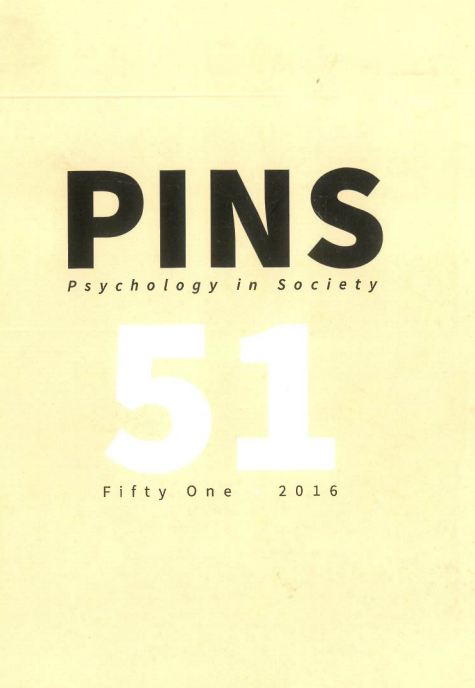“As long as they behave themselves”: Heterosexual recuperation in South Africans’ talk about homosexuality
DOI:
https://doi.org/10.17159/2309-8708/2016/n51a2Keywords:
attitude, discourse analysis, discursive psychology, heterosexism, homophobia, prejudice, sexualityAbstract
Several qualitative researchers using discursive methodologies have noted how opposition to homosexuality has not necessarily diminished, despite the general expression of liberal tolerance in many settings. Instead, heterosexist rhetoric has shifted to accommodate political change. Our research builds on this observation within the South African context, using a discursive psychology approach. We examine rhetorical strategies of “heterosexual recuperation”: the ways that heterosexual boundaries and the dominance of heterosexuality are maintained by speakers, at the same time as they attempt to avoid being heard as heterosexist. Drawing on data from a qualitative study conducted with heterosexual-identifying Black South Africans (32) from four provinces, we focus on talk that was resourced by a “discourse of tolerance” and characterised by speakers’ concern to avoid the attribution of heterosexism. This talk was analysed using thematic analysis, to which discursive psychology techniques were applied. We identified two ways of speaking that relied on this discourse – (1) “As long as they do it in private”, and (2) “Flashing their homosexuality” – and show how they ultimately worked to recuperate heterosexuality and marginalise non-normative sexualities. We discuss the implications of these findings in relation to a critical psychology that works to challenge hetero-patriarchal norms.
Downloads
Downloads
Published
How to Cite
Issue
Section
License
This journal is an open access journal, and the authors' and journal should be properly acknowledged, when works are cited.
Authors may use the publishers version for teaching purposes, in books, theses, dissertations, conferences and conference papers.
A copy of the authors’ publishers version may also be hosted on the following websites:
- Non-commercial personal homepage or blog.
- Institutional webpage.
- Authors Institutional Repository.
The following notice should accompany such a posting on the website: “This is an electronic version of an article published in PINS, Volume XXX, number XXX, pages XXX–XXX”, DOI. Authors should also supply a hyperlink to the original paper or indicate where the original paper (http://www.journals.ac.za/index.php/pins) may be found.
Authors publishers version, affiliated with the Stellenbosch University will be automatically deposited in the University’s’ Institutional Repository SUNScholar.
Articles as a whole, may not be re-published with another journal.
The copyright of the article(s) lies with the author(s).
The copyright of the journal lies with PINS-psychology in Society.
The following license applies:
Attribution CC BY-NC-ND 4.0 - https://creativecommons.org/licenses/by-nc-nd/4.0/

